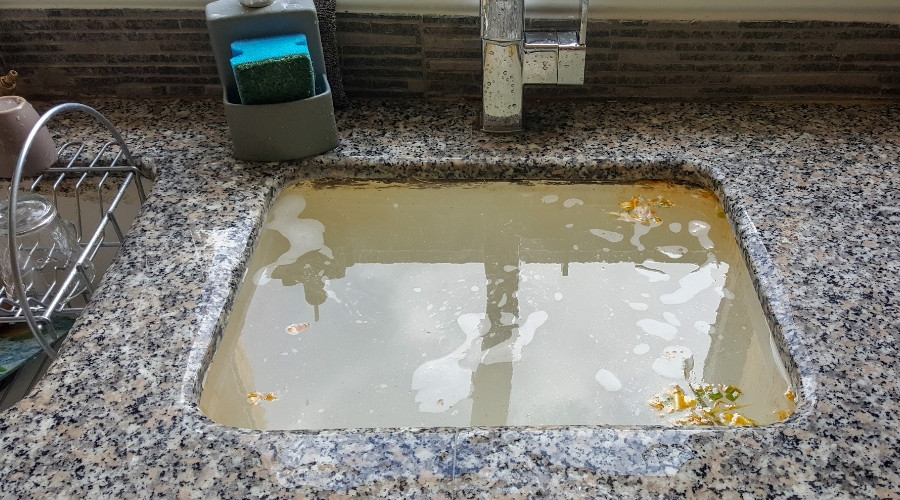Ways to Help Avoid Clogging Drain and Sewer Lines
Dealing with a clogged sewer line can lead to messy backups, costly repairs, and major disruption. Preventing a sewer line clog or drain line clog before it happens is the best way to keep a plumbing system operating smoothly. This post discusses simple, plumber-approved habits that can help maintain both the sewer line and drain line, reducing the likelihood of a clogged drain line and the need for emergency drain cleaning services.
Be Careful What Is Flushed
 Toilets are designed for flushing only human waste and toilet paper. Introducing other materials into the system increases the risk of a sewer line clog or a clogged drain line. Common offenders include paper towels, wet wipes, cotton swabs, dental floss, and feminine hygiene products. These items do not dissolve easily and can collect inside the sewer line, forming stubborn blockages that often require professional drain cleaning to remove.
Toilets are designed for flushing only human waste and toilet paper. Introducing other materials into the system increases the risk of a sewer line clog or a clogged drain line. Common offenders include paper towels, wet wipes, cotton swabs, dental floss, and feminine hygiene products. These items do not dissolve easily and can collect inside the sewer line, forming stubborn blockages that often require professional drain cleaning to remove.
Even excessive toilet paper use can cause problems. Large wads can accumulate in bends, restricting flow and creating a drain line clog. Flushing smaller amounts more frequently helps prevent buildup and protects both the drain line and the sewer line from unnecessary strain.
Avoid Putting Food Waste Down the Kitchen Sink
 Kitchen sink drains are frequent sources of a clogged drain line. Food scraps, grease, and cooking oils can travel deep into the plumbing system, eventually contributing to a clogged sewer line. Grease solidifies as it cools, coating pipe walls, while coffee grounds form dense, cement-like deposits. Eggshells add abrasive sediment, and foods like rice or pasta swell with water, creating tough blockages within the drain line.
Kitchen sink drains are frequent sources of a clogged drain line. Food scraps, grease, and cooking oils can travel deep into the plumbing system, eventually contributing to a clogged sewer line. Grease solidifies as it cools, coating pipe walls, while coffee grounds form dense, cement-like deposits. Eggshells add abrasive sediment, and foods like rice or pasta swell with water, creating tough blockages within the drain line.
Fibrous vegetable waste, such as celery or corn husks, can wrap around pipe joints and trap other debris. Even garbage disposals do not eliminate this risk—they simply grind waste into smaller pieces that still have the potential to create a sewer line clog downstream. Scraping plates into the trash before rinsing them is a simple way to protect the drain line and avoid costly repairs.
Use Drain Screens
Mesh drain screens are an inexpensive and effective method for preventing a drain line clog or clogged sewer line. These screens capture debris before it travels deeper into the sewer line, where removal becomes more complicated. Kitchen sinks benefit from fine-mesh versions that catch food particles, grease, and coffee grounds, while bathroom drains require screens designed to trap hair and soap residue.
Routine care ensures these devices remain effective. Empty collected debris into the trash weekly, rinse under hot water, and replace damaged screens immediately. Regular maintenance helps keep the drain line clear, minimizes the risk of a sewer line clog, and reduces the need for professional drain cleaning. Installing drain screens in high-use areas is an easy, low-cost step that can dramatically extend the life of both the sewer line and drain line, protecting the entire plumbing system from preventable damage.
About Jim Wagner Plumbing, Inc.
Jim Wagner Plumbing, Inc. is a family-owned and operated plumbing and HVAC company serving the people of Lombard and neighboring areas. They offer upfront pricing and top-rated service from a third-generation plumber. Call them today for plumbing services in Lombard, IL.




